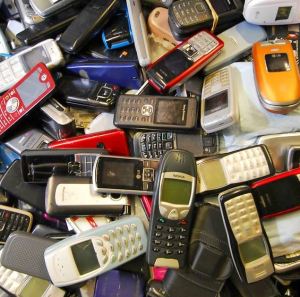Thoughts on handset manufacturers
 We recently reported on Nokia finally losing its crown to Samsung after an unprecedented fourteen years at the top. Much has been made of Nokia’s adoption of Windows Mobile and the rise of smartphones. But we maintain that this is not the whole picture. There’s a bit more to it than that and we can not take anything for granted.
We recently reported on Nokia finally losing its crown to Samsung after an unprecedented fourteen years at the top. Much has been made of Nokia’s adoption of Windows Mobile and the rise of smartphones. But we maintain that this is not the whole picture. There’s a bit more to it than that and we can not take anything for granted.
We have already written a bit about the various ways in which big mobile companies are trying to get as big a part of the market as possible as they are vying for mobile dominance. But today let’s take a slightly new perspective on handset sales. Instead of the normal perspective, an instructive way of analysing the trends in the market is by focussing on services provided rather than anything else. We can identify three separate phases in the evolution of the mobile industry each with their own dominant manufacturers.
For example, in the early days mobile phones had one use and one use only – to function as a phone. To make and receive voice calls. Here Nokia did the best.
Next came the advent of text messaging and other text-based communication such as email and BBM. This is where BlackBerry with their full keyboard layouts and business nous performed particularly well.
Nowadays, of course, we’re in the era of the ubiquitous smartphone. The focus is now all online with 24/7 internet access to services in the cloud. Here, as is becoming clear, the main contenders are Apple and Google and the main manufacturers of phones are Apple and Samsung.
Of course, there’s a bit of a lag. Nokia was still doing strongly well into the smartphone/cloud phase and BlackBerry was hanging on too with their internet capable devices. But the overall trend is what matters the most. The companies that are providing phones for the right services that consumers want do the best.
A good take-home message from this is how fickle the market is. Someone who only bought Nokias 10 years ago or was in love with their BlackBerry in the early 2000s will probably be using an iPhone or Samsung phone today.
Unlike with the mobile networks, there’s little loyalty and less scope for lock in. Even that market is opening up now but with all your contacts and messages now in the cloud, there’s nothing to lose by upgrading an old ZTE phone to a new Samsung one if they are both on Android. Even switching between Android and iOS is simplicity itself.
The lesson to learn from this is that Samsung’s dominance now need not last forever. Someone with the latest Samsung Galaxy SIII today might as well buy a HTC phone when their contract next gets renewed. There’s no reason to stick with Samsung if there is a better option elsewhere. With the new range of Sony phones looking very promising, their future dominance is far from guaranteed. As long as Samsung remains a pure hardware company, there’s even less room for complacency today.
Of course, it could easily see this as a reason to branch out more into software or even mobile network services. Company bosses and shareholders alike may be eyeing up more long-term revenue sources. Time will tell…
What’s your take on this? Do you agree with our argument? Where do you see Samsung phones in 5 years from now – still on the top or failing like Nokia is today? Please let us know.
 Three Mobile have stepped up to be the first mobile network to offer unlimited data on
Three Mobile have stepped up to be the first mobile network to offer unlimited data on  EE has just revealed the list of the next batch of towns to get
EE has just revealed the list of the next batch of towns to get 


Recent Comments